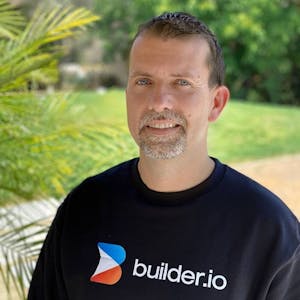It's designed to handle these scenarios seamlessly, allowing you to integrate dynamic elements where needed, while still maintaining the overall performance and simplicity of the framework. Astro allows you to define specific areas, known as islands, on your page that can become interactive. For instance, if you have a mostly static blog post, you can add a dynamic component like an interactive comment section or a live chat widget. And the best part? You can control when these components load. For example, you can set a component to load as soon as the page loads, or only when it becomes visible in the viewport. This approach minimizes the JavaScript footprint, loading interactivity only when necessary.
Astro Islands approach works by delivering the static parts of the page from a CDN for fast loading. When a component needs interactivity, the browser fetches the necessary JavaScript from the same source. The key here is that users can see the content immediately, without waiting for hydration to complete. The downside of this approach occurs when you need to display dynamic data. A run trick happens because the hydrated components request data from the server, for example in JSON format, and then displays it to the user. This pattern introduces performance penalty, as JavaScript is solely being used to fetch data, which is unnecessary and adds extra overhead. And that's the part where Server Islands come in. By using the server deferred directive, you can tell Astro to skip the initial rendering of specific components. Instead of rendering them right away, Astro intelligently defers the rendering to a later point in time, optimizing performance and reducing the unnecessary overhead of fetching dynamic data with JavaScript.
What does it mean to your site? It allows you to cache the static page behind a CDN, ensuring that your main content loads almost instantaneously, completely with a placeholder while the dynamic elements are being prepared. Once the dynamic HTML is ready, it replaces the server island on the page with the actual rendered content. This approach gives your users a fast, seamless experience right from the start, while still allowing you to deliver fresh, interactive updates effortlessly. So, here, we use client load to make the image carousel component interactive immediately after the page loads. This is ideal for components that need to be ready for user interaction right away. With client idle, we are telling the component to wait until the browser is idle or until 500 milliseconds have passed before making it interactive. This helps prioritize more critical resources while still preparing interactivity shortly after. With client visible, the image carousel component only becomes interactive when the user actually scrolls it into view. This is great performance optimization, loading JavaScript only when needed. With client media, the component becomes interactive only if the device's screen width is 1280 pixels or less. This ensures that interactivity is triggered based on responsive design needs. With client only, the component is rendered exclusively on the client side because, for example, it may use some kind of browser APIs. And last but not least, with server defer, we can say that this component should be rendered exclusively on the server side and then sent to the client. Of course, we can provide a fallback, which will be included in the initial content delivered from the CDN. Let's explore an exciting development in web design, the View Transitions API.



























Comments